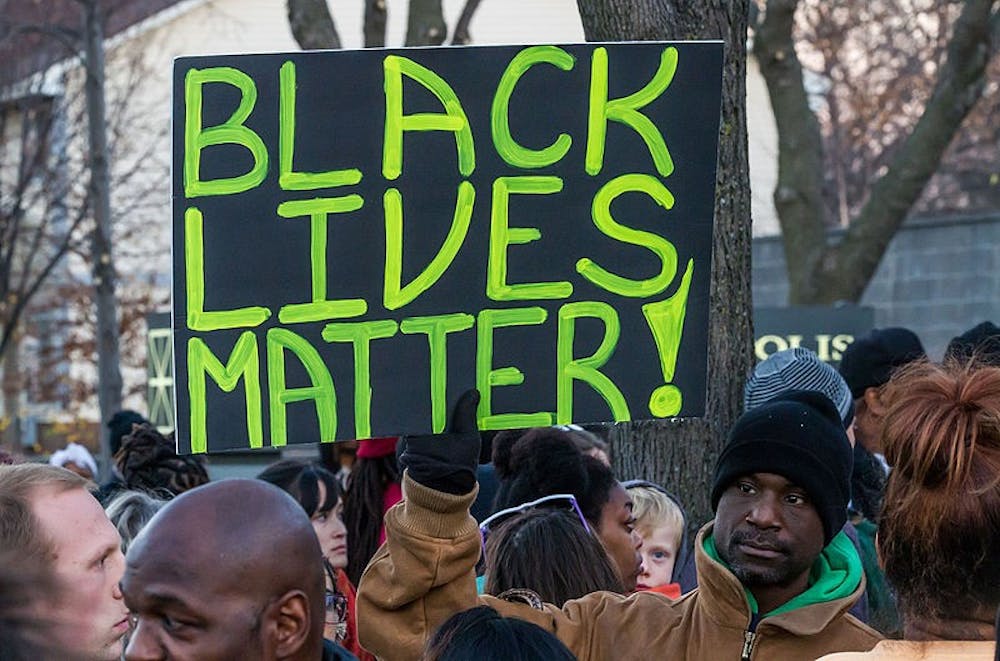While reflecting on the devastating deaths of black men that have recently occurred in our nation, I have been considering what part I can play in fostering communication and progress as a young white person in today's world. As a white person who has spent time studying and working toward social justice, I want to share some thoughts with other white people.
The death of a young person, or any person, is painful and heartbreaking. But the deaths of Philando Castile, Alton Sterling, Michael Brown and Eric Garner, among many others, are about more than just the deaths of black men. These deaths are serving as a match that has lit a fire calling attention to the social and political inequity and racial discrimination in our nation.
Protesters throughout our country have shown empathy for the loss of life. These people are asking that Americans with different worldviews suspend their disbelief for a moment and believe them when they say they have experienced racial injustice in America.
In discussing race in the U.S., it is critical to remember history. White people have dominated our country since its founding, both in law and culture. The result is a national culture in which white privilege plays a dominant — and largely unacknowledged — role. Most obviously, our society was built upon the enslavement of others. When this nation’s Constitution was written, slavery was an integral part of our society, and slaves were counted as 3/5ths of a person. And yes, while slavery as we historically define it is gone, the majority of today’s U.S. population is white, and racial biases are still present.
As white people, we must account for our inherited privilege. We must combat the inequality that is entrenched in the foundation of our country, because it is an inequality that is being perpetuated today by the apathy of white Americans, including our white leaders. We need more community engagement, social services, smarter police and investment in education to build up marginalized communities, but we must first look back on history and reflect on what is happening in the present to make these plans for a better future.
It is also important to consider the role of media in today's world. We don’t see national coverage of stories when officers have acted with kindness and restraint, nor do we see much coverage of black Americans unless they have committed a crime. This kind of reporting breeds unhealthy generalizations and stereotypes.
White Americans must confront the truths of others, regardless of whether we have felt them ourselves. Each white person reading this, myself included, has the ability to be an active ally who shows up when our neighbors are most vulnerable — an ally that can be in active solidarity by taking risks and standing up to fight for equality.
With those thoughts in mind, these are some methods to become an ally:
1) Recognize your privilege. White privilege is an institutional set of benefits granted to those who resemble the people who dominate our culture and the powerful positions in our institutions. These benefits include cultural affirmations of one's worth; assumed universality of one's own experiences; and the freedoms to speak, move, and work freely. By first recognizing privilege, we can each then fight to actively relinquish and share that power with those who don't have it.
2) Educate yourself and listen to others’ truths. Stop talking and listen. My mom always said that if you don’t have anything nice to say, don’t say anything at all. I'd like to add that if you don’t have anything nice to say, or the issue is one that does not affect you personally, it is wiser to say nothing at all than to lash out at people who are living through things you will never fully understand.
3) Embrace constant engagement. Even when issues get difficult or unclear, never stop asking questions and listening. This can mean continuing an uncomfortable conversation with your blatantly racist relative, or simply pushing yourself to think before you speak and research before you think.
We must ask ourselves:
1) How is my racial identity relevant to the challenges facing our country?
2) How can I be supportive to the people of color in my life and in my communities?
3) How can I use my personal strengths and privileges to confront and combat racism?
I am not the master of this topic, but these strategies have worked for me. If every white person actively chooses to be a compassionate ally, we can all make this nation and world better.
Contact news writer Claire Comey at claire.comey@richmond.edu

